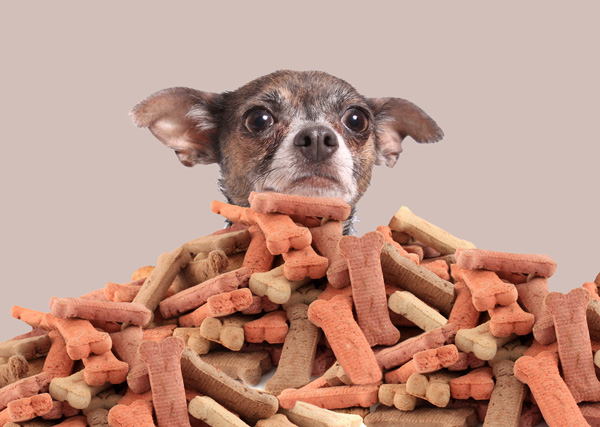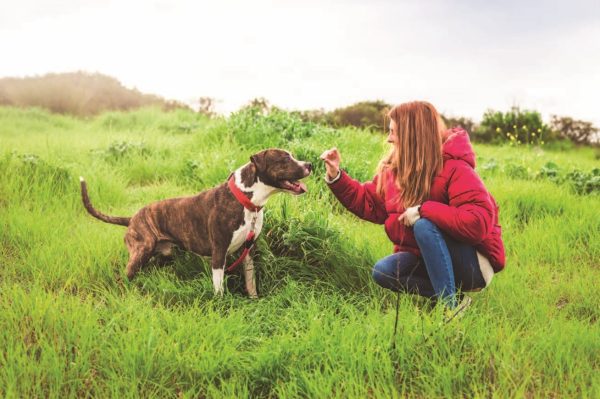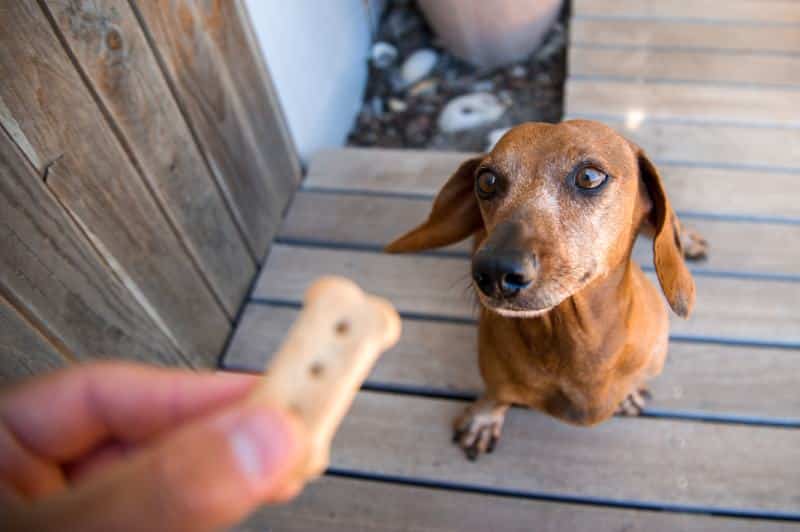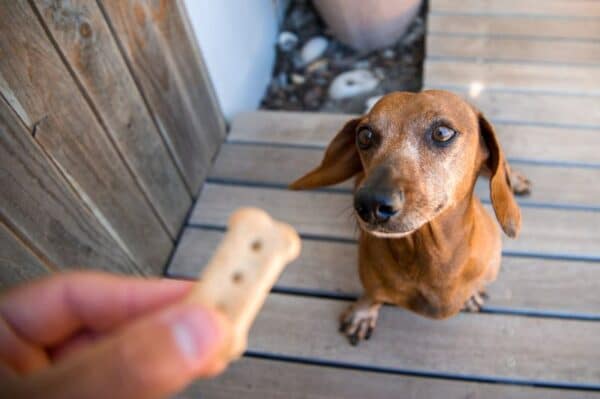Last week I discussed malicious neighbors poisoning dogs. This week’s column also deals with people giving things to dogs, but instead of malicious individuals bent on inflicting illness and death, these are well-meaning folks trying to be nice to innocent dogs. Sadly, the result of their behavior can be far from what they desire.
I’m talking about strangers or neighbors or friends or relatives who feed treats to your dog without first asking your permission. They mean well. They are nice people. They have good intentions. And we all know about the place where the road paved with good intentions leads.
What could go wrong? To start, you don’t know what type of treat they’re feeding. Is it a high-quality treat, or is it one of those imported chicken jerky treats that have been linked to Fanconi Syndrome and kidney failure in dogs? Does the sort of person who would feed treats to someone else’s dog without first asking permission even know that some dog treats have been linked to illness and death?

Even carefully selected high-quality treats can cause problems for sensitive dogs. Some dogs have food allergies and must consume only limited-ingredient diets, and treats can lead to itching, hair loss, and ear infections. Other dogs have dietary intolerances; these dogs may develop diarrhea and vomiting when fed something novel. Others still require therapeutic diets for liver, heart, kidney, or bladder disease. Variation from these diets can lead to complications.
Treats from friends and strangers can interfere with training and behavior. My pal, Buster, is normally a perfectly well-behaved canine citizen. However, he goes bananas (and embarrasses me to no end) when he sees the people who regularly slip him treats.
Some people, for philosophical reasons, wish for their dogs to adhere to certain diets. There are people who wish for their dogs to be vegetarian (appropriate vegetarian diets can work for dogs), or who wish for their dogs to eat grain-free or raw diets. I am not one of these people, but I also am not one to judge; as long as the dog comes to no harm it is none of my business. But if you strive to feed your dog an organic raw diet, I don’t imagine you will be happy when a kindly stranger offers your dog a cheap imported chicken jerky treat.
Even dogs with strong constitutions, no dietary restrictions, perfect behavior, and no philosophical dietary limitations can suffer from problems if treats are fed in excess. Consumption of large quantities of rich foods can cause pancreatitis, a severe digestive system problem that can be life-threatening in extreme instances. It also predisposes dogs to diabetes.
These well-meaning people simply don’t understand that they can cause harm to the dog they are trying to befriend. Others should know better: Years ago, I counseled the owner of a dog with food allergies on the implementation of a strict limited-ingredient diet. The owner and the dog walked out of the exam room, and the receptionist promptly offered the dog a non-approved treat. The owner was less than thrilled.

I have a confession: I was once one of those well-meaning people, and I have lost many nights of sleep wondering whether I harmed an innocent dog. I was 11 years old, and my father took me on a trip to Europe. In Germany, we visited an old friend of his who owned a Dachshund. As I mentioned, this happened in Germany: A nice spread of sausages, bratwurst, schnitzel, and cheese was laid out for us. I, with the best of intentions, offered generous portions of these rich human comestibles to the dog. The dog loved it, and we became fast friends. Later, on a walk, the dog had nasty diarrhea. My father and I left town shortly thereafter.
Now that I understand dogs better, I have often thought of that incident. Did I simply cause an episode of diarrhea? Or did something worse happen? The quantity of fatty food that the dog consumed easily could have caused necrotizing or hemorrhagic pancreatitis. I sure hope it didn’t. I meant well at the time and I didn’t know better. The owner watched me feed the treats to the dog and took no action to stop me.
That brings me to a question: How do you deal with these types of situations? A certain amount of diplomacy is necessary when you’re trying to stop a nice person from doing something that he or she doesn’t know is potentially harmful to a dog. I will admit that I’m not very forceful about the matter. My pal Buster has a strong stomach, so I often just confirm that the treats aren’t imported chicken jerky and then let the strangers feed him. But many of you no doubt have dogs that simply cannot consume treats.
What do you do? Let us know in the comments below.
Got a question for Dr. Barchas? Ask our vet in the comments below and you might be featured in an upcoming column. (Note that if you have an emergency situation, please see your own vet immediately!)
Featured Image Credit: Gerhardus Kotze, Shutterstock









